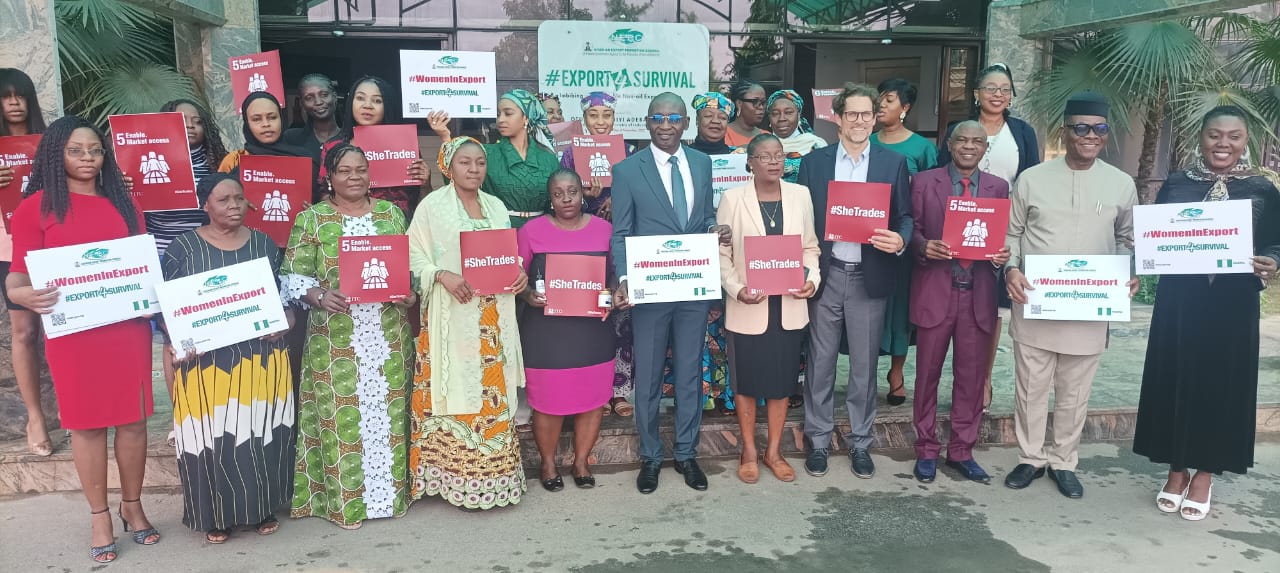The Nigerian Export Promotion Council (NEPC) on Monday in Abuja, empowered 35 women entrepreneurs on packaging and labeling of shea products.
The News Agency of Nigeria (NAN) reports that NEPC organised the two-day training in collaboration with the International Trade Centre (ITC).
Dr Ezra Yakusak, the Executive Director and CEO of NEPC, said that the training was essential in equipping the women with the knowledge to develop appropriate packaging and labelling solution.
According to Yakusak, in today’s global marketplace, packaging and labelling play pivotal roles in determining the success of non-oil exportable products.
“They are the first impressions products make on our customers, the stories we tell through our branding are the crucial elements that enable us to stand out and compete globally.
“However, we acknowledge the challenges that many businesses face in this regard.
“It is not merely about understanding the importance of good packaging and labelling but building a sustainable packaging system.
“When you are starting something for the first time, you need to figure out how to begin and understand the complicated steps.
“You also need to make choices that align with your customers’ needs and specific market requirements for the market,’’ he said.
The NEPC boss further said that the workshop would provide valuable guidance to shea product processors, distributors, cooperatives, traders packing shea products in bulk, semi-bulk for hotels and restaurants, retails, and e-commerce.
“In doing this, we aspire to enhance the efficiency, profitability and sustainability of your businesses.
“Our approach is like a roadmap to prevent mistakes when improving your packaging.
“It saves time and money by doing things correctly from the start, instead of trying different things and learning from errors,’’ he said.
Yakusak urged the participants to utilise the opportunity to improve their businesses.
“The knowledge you gain here will be a contributory driving force behind the success of your businesses.
“So, let us embark on this journey together, exploring the world of packaging and labelling, and charting a new course toward greater success and sustainability in the shea beauty sector,’’ he said.
Mr Frederic Couty, a packaging and continuous improvement expert at ITC, said that the programme was about supporting small and medium scale companies to improve their packaging system.
According to him, it will enable the beneficiaries to better access the market and to improve their sales, improve their profitability on the Nigerian market and also outside Nigeria.
“We look at the methodology on how to improve a packaging system and how to create a new packaging system in a cost-efficient manner doing right the first time in order to reach the targeted customer in an efficient manner.
“There are many ways to improve their packaging system.
“First is to align your strategy with the packaging system. You don’t design the packaging system for yourself but you design as an entrepreneur, you design it for your targeted customers.
“So, it is very important to understand the difference between those two components and more specifically to take your strategy and to see how this can influence your packaging system.
“This means your packaging materials is behind the graphic that you are going to develop on your products and developing good relationships with your suppliers of materials.
“Others are identifying the right type of packaging equipment to facilitate the packing of your product and then also come with the logistics and the transportation of the finished product,” he said.
One of the beneficiaries, Mr Evelyn Nduka, commended NEPC for the opportunity, saying that the knowledge acquired would enable her to align with her customers’ market requirements.
(NAN)



